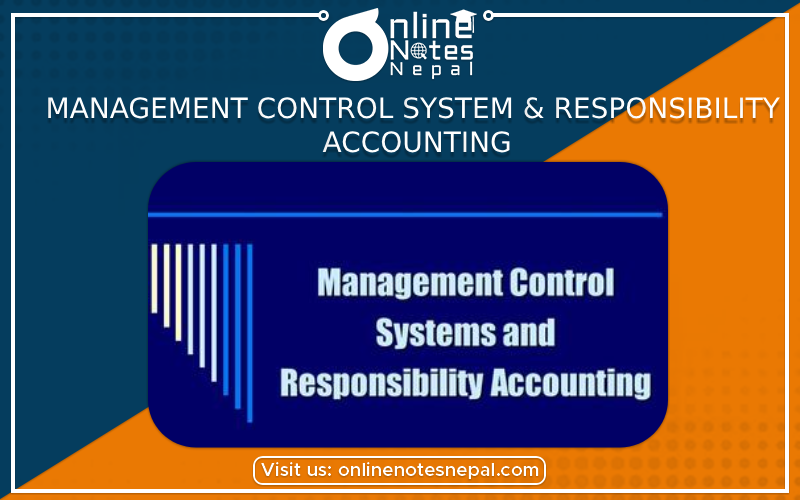Published by: Anu Poudeli
Published date: 11 Jul 2023

A management control system (MCS) is a collection of processes, tools, and structures that businesses utilize to assist them achieve their goals and objectives. It gives managers the information they need to evaluate the performance of various organizational resources and activities and, if necessary, take remedial action.
Management Control System Components:
MCS begins with strategic planning, which is setting goals, developing strategies, and developing plans to attain them.
MCS comprises performance measurement systems that track and evaluate the performance of individuals, departments, and the entire organization. Key performance indicators (KPIs) are used to compare performance to goals.
Budgeting is an essential component of any management control system. Setting financial targets for revenue, expenses, and investments and allocating resources properly is part of it. Budgets act as a road map for accomplishing financial goals.
Management Information Systems (MCS) rely on information systems to collect, process, and transmit important data to managers. These systems deliver quick and accurate data to aid in decision-making and control.
MCS allows feedback and control methods that assist managers in monitoring actual performance against planned targets. Deviations are recognized, assessed, and corrective actions are implemented to return performance to normal.
Responsibility Accounting: Responsibility accounting is a management accounting approach that assigns cost and revenue responsibility for various organizational resources and activities to specific individuals or departments. It entails delegating financial responsibility to people who have authority and control over the resources.
Responsibility Accounting's Key Concepts:
Responsibility Centers: Organizational units are classified as responsibility centers in responsibility accounting. Depending on the nature of the obligation, these centers can be cost centers, revenue centers, profit centers, or investment centers.
Cost Centers: Cost centers are in charge of cost control and management. Their success is measured using cost-related measures such as cost reduction and cost efficiency.
Revenue Centers: Revenue centers are concerned with earning revenue. Revenue-related variables, such as sales volume or revenue growth, are used to assess their success.
Profit centers are in charge of both revenues and costs, and their success is measured using profitability metrics such as operating income or return on investment.
Investment Centers: Investment centers are responsible for the return on investment and have the ability to make investment decisions. They are assessed using financial performance metrics such as return on investment (ROI) or economic value added (EVA).
The Advantages of Responsibility Accounting:
Overall, management control systems and responsibility accounting are critical in allowing businesses to successfully set objectives, monitor performance, and allocate responsibilities. These principles help to guarantee that the organization's resources are used efficiently and that managers have the information they need to make educated decisions and corrective actions.